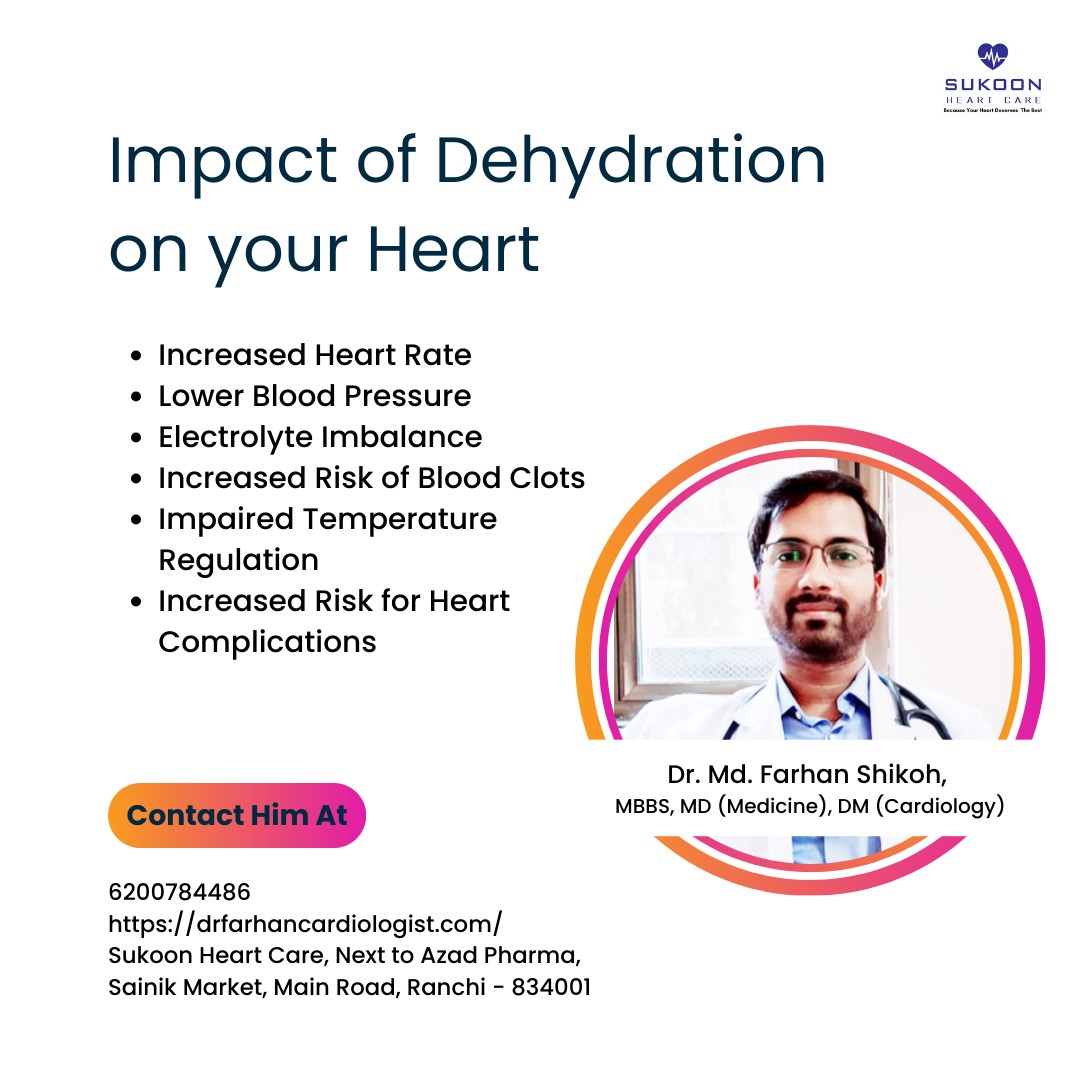The Impact of Dehydration on Heart Health
Dehydration is often overlooked as a potential threat to overall health, but it can have serious implications for heart health. As the body loses fluids, its ability to function optimally is compromised, leading to various complications, particularly for the cardiovascular system. Here, we explore the ways dehydration can impact heart health and offer guidance on maintaining proper hydration.
Understanding Dehydration
Dehydration occurs when the body loses more fluids than it takes in. This can happen due to excessive sweating, not drinking enough water, or conditions such as diarrhea and vomiting. Symptoms can range from mild (thirst, dry mouth) to severe (confusion, rapid heartbeat).
Effects of Dehydration on the Heart
Increased Heart Rate: When dehydrated, the blood volume decreases, causing the heart to work harder to pump blood. This can lead to an elevated heart rate, which may strain the heart over time.
Reduced Blood Pressure: Severe dehydration can lead to a drop in blood pressure, which may result in dizziness or fainting. Low blood pressure can be particularly dangerous for individuals with existing heart conditions.
Impaired Electrolyte Balance: Dehydration can disturb the balance of electrolytes, such as sodium and potassium, which are crucial for heart function. An imbalance can lead to arrhythmias or irregular heartbeats.
Increased Risk of Blood Clots: Dehydration thickens the blood, making it more viscous. This increases the risk of blood clots, which can lead to serious cardiovascular events such as heart attacks or strokes.
Impact on Overall Heart Function: Chronic dehydration can contribute to long-term heart problems, including heart failure. Staying hydrated is essential for maintaining the heart's efficiency and health.
How to Stay Hydrated
Drink Water Regularly: Aim for at least 8-10 glasses of water a day, adjusting for activity levels and climate.
Eat Hydrating Foods: Include fruits and vegetables with high water content in your diet, such as cucumbers, oranges, and strawberries.
Monitor Fluid Loss: Be mindful of fluid loss during exercise or hot weather, and replenish with water or electrolyte-rich drinks.
Limit Diuretics: Be cautious with caffeine and alcohol, as they can lead to increased fluid loss.
Conclusion
Maintaining proper hydration is crucial for heart health. Dehydration can significantly strain the cardiovascular system, leading to various health issues. If you experience symptoms of dehydration or have concerns about your heart health, it is essential to consult a healthcare professional.
For personalized advice and consultation, you can reach out to Dr. Md. Farhan Shikoh, MBBS, MD (Medicine), DM (Cardiology), known as the Best Blood Pressure Doctor in Ranchi. His practice, Sukoon Heart Care, is located at Sainik Market, Main Road, Ranchi, Jharkhand: 834001. You can contact him at 6200784486 or visit his website at https://drfarhancardiologist.com/ for more information.
#bestcardiologistinranchi #bestheartdoctorinranchi #bestheartspecialistinranchi #bestdiabetesdoctorinranchi #sukoonheartcare #ranchi #drfarhanshikoh












